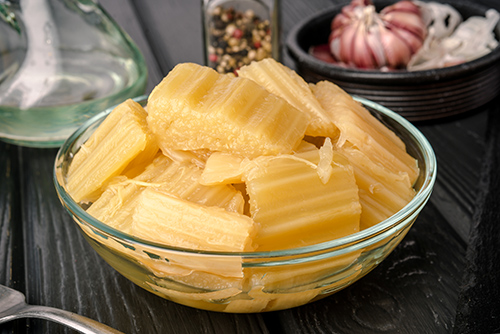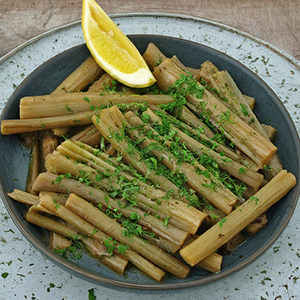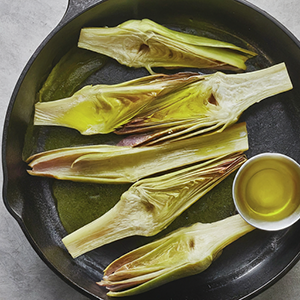Contents
The few Cardoon health benefits are essential; however, let us learn more about this vegetable. Although the cardoon is a Mediterranean vegetable, it is much valued in Germanic countries, where it is considered an exotic food. Although it resembles celery, its flavor is closer to the artichoke, a plant of the same botanical genus.

Cardoon Health Benefits
Its composition is also similar to an artichoke. The significant differences are:
Carbohydrates (3.29 percent) are formed primarily from inulin. This carbohydrate is formed from fructose molecules and is well tolerated by people with diabetes.
Minerals—Cardoon is very rich in calcium, magnesium, and iron. It also contains small amounts of trace elements, such as zinc, copper, and manganese.

Cynarin – This non-nutritive substance is also found in artichoke. It significantly affects the liver: It increases bile secretion, decongests the liver, and facilitates detoxification. Since the bile is more fluid, the gallbladder empties more efficiently, lowering the risk of calculus formation.
Cardoon is suggested particularly in these cases:
Chronic or degenerative liver disease (hepatitis, cirrhosis, etc.).
Cholelithiasis and disorders of the gallbladder.

Cardoon Scientific Facts
- Scientific name – Cynara cardunculus L.
- Other names – Spanish cardoon, Red-stemmed cardoon, Cardi, Cardoni.
- French – Chardon.
- Spanish – Cardo, alcaucil silvestre.
- German – Kardonenartischocke.
- Description—The stalks of the cardoon, an herbaceous plant of the botanical family Compositae. Each stalk is formed by a petiole (leafstalk) that continues with the central nerve of the leaf. They may reach more than a meter in length. The stalks join at the base of the plant and can be whitish or reddish.
- Environment – Cardoon is grown in prepared fields in Mediterranean countries and South America.
How to use and Prepare Cardoon
- RAW – The young, tender stalks may be eaten raw in a salad.
- COOKED – Boiled or roasted with Béchamel sauce and slivered almonds, cardoon is a typical Christmas dish in Mediterranean countries.
DISCLAIMER: All content on this website is presented solely for educational and informational objectives. Do not rely on the information provided as a replacement for advice, diagnosis, or treatment from a qualified medical expert. If you are pregnant, nursing, or have any preexisting medical concerns, talk to your doctor before using any herbal or natural medicines.
REFERENCES
- George D. Pamplona-Roger, M.D. “Encyclopedia of Foods and Their Healing Power.” George D. Pamplona-Roger, M.D. Encyclopedia of Foods and Their Healing Power. Trans. Annette Melgosa. Vol. 2. Chai Wan: Editorial Safeliz, 2005. 177. Print. [cardoon health benefits]
- https://www.mdpi.com/2223-7747/8/8/293
- https://www.mdpi.com/1420-3049/23/4/881
